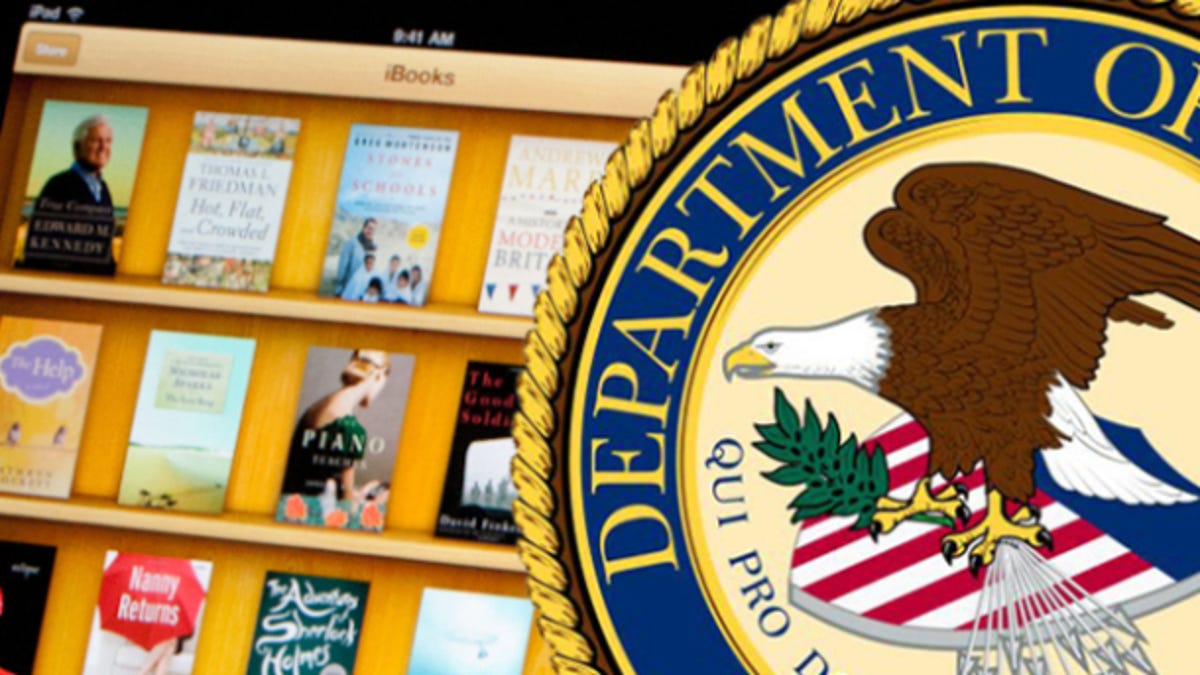Judge orders Apple e-books monitor to prevent 'further misconduct'
An external monitor will be in place for two years to ensure that Apple complies with the court's orders. But the judge excluded other remedies the government had suggested.

Apple strenuously argued against having a monitor, but the U.S. Department of Justice, which in July won an antitrust lawsuit against Apple, said that it was essential to make sure the electronics giant didn't violate antitrust laws again.
"By appointing an external monitor to ensure future compliance with the antitrust laws, the court has helped protect consumers from further misconduct by Apple," Bill Baer, assistant attorney general of the DOJ's antitrust division, said in a statement. "The court's ruling reinforces the victory the department has won for consumers."
Judge Denise Cote ordered the monitor for a shorter time span than the actual five-year injunction but said it can be extended by one or more one-year periods. The injunction itself also can be expended in increments of one-year periods, if necessary. Apple and the DOJ must meet to try to agree on an external monitor, she said. And going forward, Apple must give the DOJ or plaintiff states access to the company and its employees to make sure it's complying with the injunction.However, Cote also excluded some other remedies the government had suggested. That included a provision that would allow e-book rivals, such as Amazon, to provide direct links to their stores on iOS apps without paying Apple a fee. Overall, the injunction applies only to the iBookstore and doesn't limit Apple's other stores. The order was filed on Thursday but made available Friday.
Apple, meanwhile, plans to appeal the injunction.
"Apple did not conspire to fix ebook pricing," the company said in a statement. "The iBookstore gave customers more choice and injected much needed innovation and competition into the market. Apple will pursue an appeal of the injunction."
Cote, of the Southern District of New York, in July ruled that Apple conspired with publishers to hurt competition and raise e-book prices. As a result of that ruling, Apple will have to comply the sanctions handed down by the court. Apple and publishers have objected to some of the terms proposed by the Justice Department, and the DOJ and Apple appeared before Cote a couple times over the past month to make their arguments about the remedies.
Along with the monitor, Cote prohibited Apple from enforcing or entering into any e-book price-matching agreements. It also can't enter agreements with any publishers involved in the suit that "restricts, limits, or impedes Apple's ability to set, alter, or reduce the retail price of any e-book or to offer price discounts or any other form of promotions to encourage consumers to purchase one or more e-books." The term lengths limiting such agreements with publishers vary from 24 months with Hachette to 48 months with Macmillan.
In addition, Apple must apply the same terms to the sale or distribution of an e-book app through its App Store as it applies to all other apps sold through the store. However, that provision doesn't prevent Apple from introducing new categories of apps with different terms and conditions or from changing its App Store terms and conditions.
The audit committee of Apple's board -- made entirely of non-Apple employees -- also must name someone not employed by Apple to serve as an "antitrust compliance officer." That person will serve in that role for the entire length of the judgment and will supervise Apple's antitrust compliance efforts.
In April of last year, the Justice Department initially sued Apple, along with five of the six largest book publishers in the U.S., accusing all parties of conspiring to set digital book prices and break Amazon's hold on the market with its Kindle e-book reader.
Apple, which was preparing for the launch of the first
In its case, the DOJ said Apple and the publishers forced Amazon to also move to an agency model and "have caused e-book consumers to pay tens of millions of dollars more for e-books than they otherwise would have paid." Apple, meanwhile, argued that its entry into the e-books market helped competition and gave consumers more choice.
All of the publishers settled with the DOJ, and only Apple's case went to trial. It was argued over the course of three weeks in July in a Lower Manhattan courthouse.
Updated at 7:45 a.m. PT with additional details and background.

